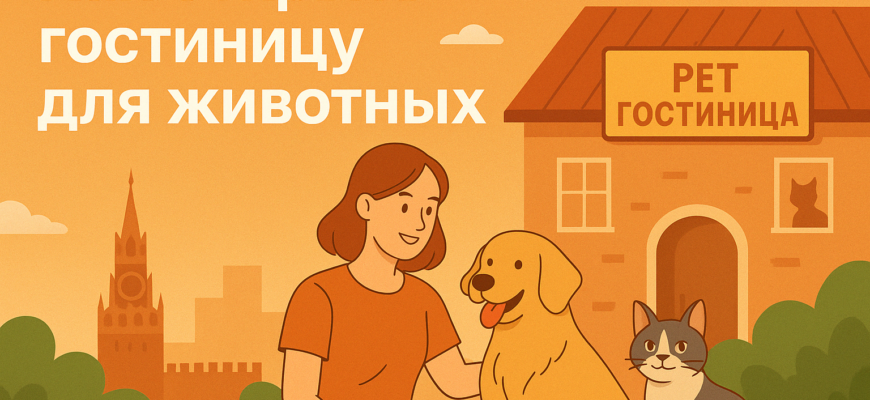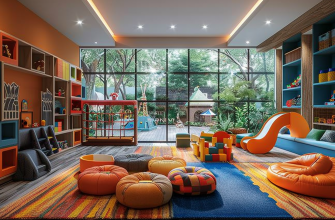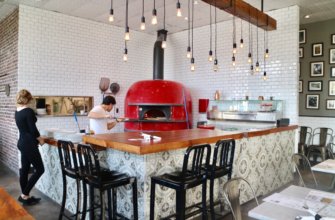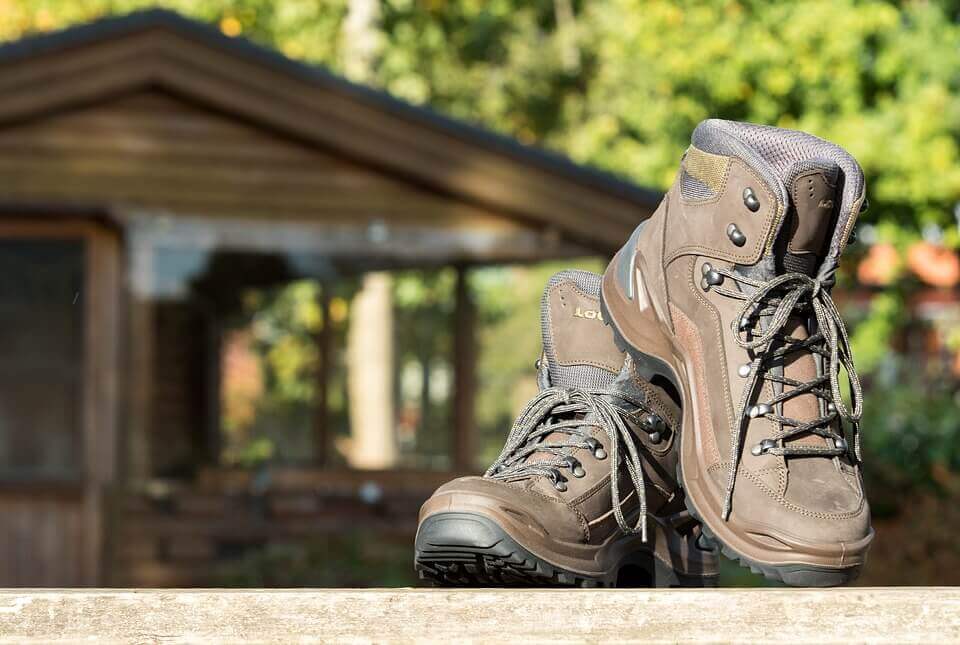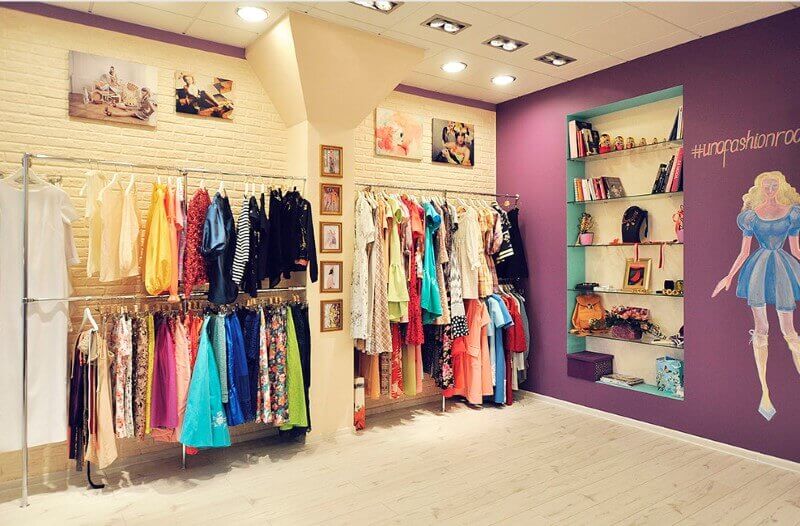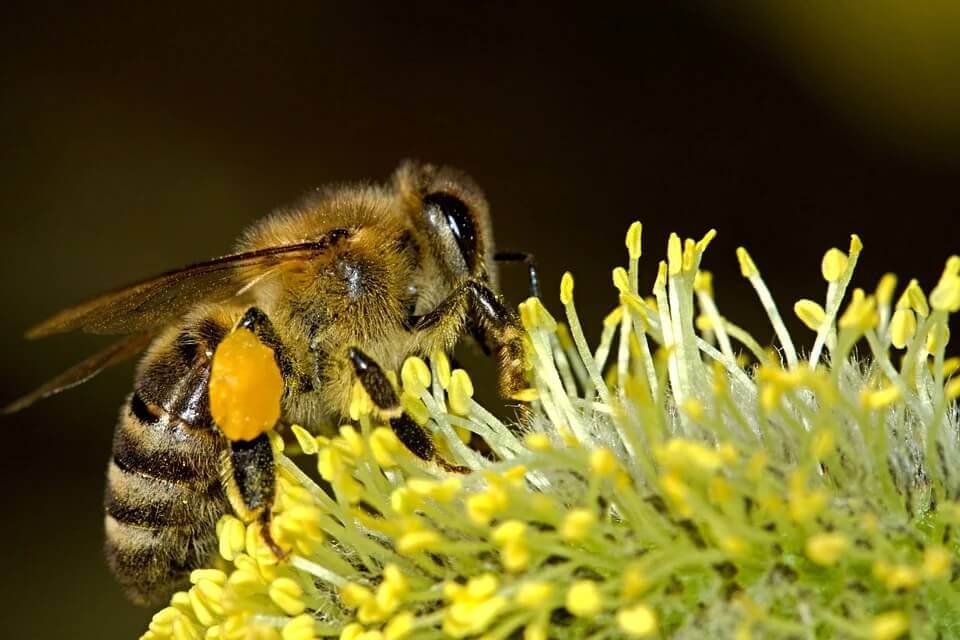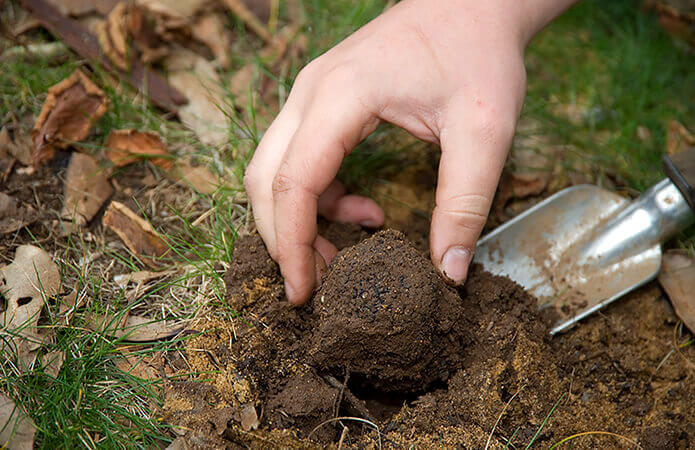A pet hotel is a special hotel where owners of cats and dogs can temporarily leave their pets under the care of professionals. The demand for such services in large cities is constantly growing, because more and more people have pets and periodically need to keep them for vacation or business trips. In Moscow, the niche of pet hotels is not yet oversaturated: quality hotels for cats and dogs are relatively few, so the new project with a competent approach has a chance of success. Below is a step-by-step instruction on how to open your own hotel for animals (cats and dogs) from scratch - from finding premises and registering a sole proprietorship to organizing the care of guests and promoting services.
- Features of pet hotel business
- Selection of location and preparation of the premises
- Registration and legal requirements
- Accommodation conditions and animal care
- Daily routine and supervision
- Necessary equipment and inventory
- Personnel and requirements for employees
- Financial plan: investments, expenses and profits
- Start-up investments
- Monthly expenses
- Revenues and potential profits
- Marketing and promotion of services in Moscow
- Conclusion
Features of pet hotel business
Before opening a pet hotel, it is important to take into account the specifics of this business. The main target audience is cat and dog owners who value the safety and comfort of their pets. Key features and advantages of a pet hotel in Moscow in 2025:
-
Growing demand with moderate competition. The number of pets is constantly increasing, and many owners are prepared to pay for reliable supervision. Dozens of pet hotels are already operating in Moscow, but demand still exceeds supply, especially during the vacation and vacation season.
-
Separate housing for cats and dogs. Different animals can be accepted in the same hotel, but their accommodation is strictly separate. Cats and dogs are kept in separate rooms (enclosures) and areas to reduce stress and avoid conflict.
-
High standards of care. Clients expect a pet hotel to provide comfortable conditions: spacious and clean premises, regular dog walking, scheduled feeding, veterinary supervision. Photography or video monitoring is also becoming the norm - owners want to receive photo reports on how their pet is doing.
-
Responsibility and Compliance. The business involves a high level of responsibility. It is necessary to comply with legal and ethical standards treatment of animals. Since the 2020s, Russia has had a law "On Responsible Treatment of Animals", as well as GOSTs establishing requirements for the temporary keeping of pets in shelters and pet hotels. This means that the accommodation conditions must be humane, safe and comfortable for animals.
An example of a cozy room for dogs in a modern pet hotel: a spacious room with comfortable beds instead of cages. High-quality conditions increase customer confidence and pet comfort.
With these features in mind, let's move on to the practical steps of launching a pet hotel.
Selection of location and preparation of the premises
Location Search. At the initial stage it is necessary to find suitable premises in Moscow. It is advisable to analyze where competing pet hotels are located, and try to choose an area of the city where such services do not already exist. It is important that it was convenient for clients to get to - the ideal option if the hotel is located near the subway (10-15 minutes on foot) or major interchanges. The presence of parking for guests will be a plus, since many bring pets by car. In Moscow, pet hotels are often opened either on the outskirts (in private houses where there is an area for walking), or within the city on the first floors or in separate commercial buildings.
Premises Requirements. The room must meet a number of criteria: it must be spacious enough, have heating, ventilation, water and electricity. Occupancy in a residential basement or basement is undesirable and in fact prohibited It is difficult to provide the required ventilation and soundproofing. It is better to choose a non-residential building - for example, a separate house, an annex or the first floor of a non-residential building. The area depends on the planned number of places: on average, for one pet you need to provide ~3-5 m2 space of his personal room plus common areas. It is also worth considering a reception area for receiving clients and storing documents.
Preparation and repair. After renting or purchasing a location, it needs to be customized to meet the needs of the animals. Basic steps to prepare the location:
-
Space Zoning. Divide the room into cat block и dog block (preferably on different floors or at different ends of the building so that animals cannot hear or see each other). Also allocate space for a kitchen area (for storing feed and preparing food), a utility room for storing equipment and cleaning supplies, and possibly a separate quarantine room (in case an animal gets sick and needs to be isolated).
-
Renovation with regard to sanitary standards. Wall and floor finishes should be moisture resistant and resistant to frequent cleaning and disinfection. It is optimal to use tiles, poured floors or durable paints that can be easily cleaned and treated with disinfectants. It is advisable to make the floors in the rooms with a slight slope to the drain or to equip a system for draining liquid waste (to simplify cleaning).
-
Safety and comfort. Each room should have natural and/or artificial lighting, heating (maintaining a comfortable temperature of ~18-25°C) and ventilation. Soundproofing between rooms is also important, especially for cats - guests should not constantly hear dogs or other animals barking, which reduces stress. All doors and partitions should be securely locked to prevent animals from escaping or uncontrolled movement around the hotel. If it is possible to build a paddock on the adjacent territory, it should be fenced with a high solid fence not lower than 2.5 meters with protection against digging.
Norms and GOSTs. Russia has developed the GOST R 57014-2016 standard, which establishes the following general requirements for temporary housing services for non-productive animals (pets). Although this is not a law, but an advisory standard, its provisions describe the optimal conditions for pet hotels. For example, according to GOST, each animal is accommodated in an individual roomcages that are cramped and restrict movement should be avoided. Here are some recommendations from the standard to understand the scale of the room:
-
For medium and large breed dogsCeiling height of at least 2.4 m (standard height), personal space of at least 3.5 m2. For very large dogs (giant breeds) - from 5 m2. There must be a window of at least 0.7 m2 for daylight. The air temperature should be between +16 and +25 °C.
-
For small dogsHeight 2.4 m, room area at least 2.5 m2. The temperature is between +18 and +25 °C. In the case of small dogs, visual contact between rooms is allowed (they are less stressed by the sight of each other).
-
For catsThe area of the room should be at least 3 m2. It is desirable to have a window in the cat room (at least a small one, from 0.15 m2 and vertical structures - shelves, climbing platforms, scratching posts, so that the cat can climb to a height. This corresponds to the natural needs of cats and reduces their anxiety in a new environment.
Of course, not every novice entrepreneur will be able to strictly comply with GOST in all parameters at once. However, when planning repairs and furnishings it is worthwhile to be guided by these recommendations - this will improve the quality of services and the reputation of the hotel in the eyes of clients.
Registration and legal requirements
Official registration of the business is a mandatory stage, since the pet hotel will work with clients on a paid basis. The optimum form for a small enterprise will be registration individual entrepreneur (IE). Consider the key legal issues:
-
Form of Business. If you are starting a business on your own, it is sufficient to register an IE. The state duty for registering an IE is 800 roubles, but if you register electronically via the tax office's website, you can register for free. If the project has several co-founders, then it will be necessary to open a limited liability company (LLC), but for a solo start-up it is unnecessary complications.
-
Selection of OKVED codes. When registering, the activity code is specified. The basic code is suitable for a pet hotel 96.09 - "Provision of other personal services not included in other groupings".. This code explicitly includes pet care services (stabling, housing, training). Additionally, if you plan to retail pet supplies or food on the premises, it is worth adding the relevant trade codes. Please note: the sale of food requires certificates for these products, and veterinary services will require a separate license (therefore, it is better not to declare veterinary services, but to limit them to maintenance services).
-
Licenses and Permits. Special license for the activity of an animal hotel not required, if you do not provide veterinary medical services (e.g., treatment, vaccinations, surgeries directly at the hotel). A regular pet sitting service is not subject to licensing. However, the business must obtain a number of permits: specifically, conclusion of fire inspection and Rospotrebnadzorthe compliance of the premises with fire safety requirements and sanitary norms. This means that you need to invite inspectors after the renovation:
-
The fire inspectorate will check whether the premises are equipped with fire extinguishers, fire alarms, emergency exits, evacuation plan, etc. If the inspection is successful, you will receive a fire safety certificate/conclusion.
-
Rospotrebnadzor will assess the sanitary and epidemiological condition: layout, finishing, availability of water supply and sewerage, waste removal contract, disinfection/de-deterioration schedule, compliance with microclimate norms, etc. The result should be a sanitary and epidemiological expertise (conclusion) permitting the operation of the premises as a pet hotel. The result should be a sanitary-epidemiological expertise (conclusion), allowing the operation of the premises as a pet hotel.
-
-
Veterinary Requirements. Although the activity itself is not licensed, compliance is required veterinary regulations when working with animals. It is advisable to establish cooperation with the local state veterinary service. For admission of animals for holding prerequisite must be available to each pet veterinary passport with vaccination records(especially against rabies and other major infections). Some hotels also require a certificate of form No. 1 (veterinary certificate) on the state of health issued by a veterinarian shortly before check-in - this is an additional guarantee that the animal is free from contagious diseases. All these requirements must be specified in the contract with the client and the pet's questionnaire.
-
Customer Contract. It is recommended to develop a model contract for the provision of services of a pet hotel. It specifies the terms and conditions of accommodation: terms, cost, payment procedure, obligations of the parties. Be sure to write down that the owner provides truthful information about the health of the pet, gives consent to veterinary intervention in emergency cases, the hotel's liability is limited to the case of willful violations, etc. Also include a clause about what happens if the owner does not pick up the animal within the agreed period of time - according to the law, it is impossible to abandon animals, so it will be necessary to either continue care (for an additional fee), or to transfer the animal to the shelter after a certain period of time. A properly drafted contract will protect you in disputable situations.
-
Taxation. For an IE with overstay services, it is optimal to apply the simplified taxation system (STS). There are two options: UST 6% ("income") - you pay 6% of tax on the total proceeds, or UST 15% ("income minus expenses") - 15% is paid on the difference between revenue and confirmed expenses. If you are planning a small premises and expenses are minimal, it is easier to choose the 6% rate. If you will pay a large monthly rent, buy fodder, pay employees an official salary, etc., it may be more profitable to pay 15% on the profit. With the simplified taxation system, you are exempt from VAT and most of the complicated reports - for a small business this is convenient.
So, after registering a sole proprietorship and obtaining the necessary permits, you can proceed to the direct arrangement of the hotel and the organization of the process of animal care.
Accommodation conditions and animal care
In a pet hotel, all processes should be sharpened to ensure the safety, health and comfort of the guests - cats and dogs. Let's consider the main aspects of care:
Individual rooms. Each animal is housed in a separate room or enclosure. Room sizeis selected according to the type and size of the pet: cats need ~3 m2, dogs need from 2.5 to 5 m2 (according to GOST recommendations). The enclosure should be high enough so that, for example, a large dog will not jump out (usually 1,5-2 m high fence, or a fully enclosed room). Room equipmentA bed or mattress for sleeping, bowls for water and food, a litter tray for the cat, a scratching post and shelves (for cats), toys as needed. It is desirable that the animals have no direct visual contact with each other from their "rooms" - this is especially true for cats and large dogs, which can be nervous to see their kin. Some modern pet hotels instead of cages equip just such rooms with a door (or a mesh door) and even decorate them to make the pet feel at home.
Daily routine and supervision
The hotel should develop a routine in advance for the staff to follow:
-
Dog walking. This is a mandatory service for dogs. Adult dogs are usually walked at least 2-3 times a day (morning, afternoon and evening). For very active breeds or in agreement with the owner, more frequent walks may be possible. Walking is done either in the closed area of the hotel (if there is one) or the staff will take the dogs on a leash outside/to the nearest park. Staff must be accompanied on all walks and it is unacceptable to let other people's dogs walk alone. Aggressive or fearful animals will be walked individually, separately from others. After each walk, waste is collected and the area is cleaned (cleaning should be done by daily according to sanitary regulations).
-
Cat Care. Cats are not usually walked outside, but you can provide a game timeoutside their room (one at a time, in a specially equipped room or fenced area). Many cat hotels have rooms with scratching posts and shelves where cats can run around under the supervision of the staff. Some cats, if harnessed, can go outside, but this is an exception - regular cleaning and attention of the staff is usually enough.
-
Feeding. The diet and feeding regimen is discussed with the owner at check-in. Most often the owners themselves provide the usual food for the period of stay (this excludes sudden change of diet and food problems). If the food is provided by the hotel, it is necessary to purchase quality dry and wet food of popular brands and take into account preferences/allergies. Feed adult dogs usually 2 times a day (morning and evening), puppies - 3-4 times (according to the regime agreed with the owner), cats - 2 times (or free access to dry food + wet food 1-2 times). Water should be permanently available and be replaced with fresh ones on a regular basis.
-
Cleaning and hygiene. Cleaning of detention facilities is carried out at least once a dayChange diapers or litter, mop the floors, clean bowls. If a pet gets dirty, it needs to be washed or wiped down (with the owner's permission, some hotels offer grooming services for a surcharge). The rooms are kept clean and odor-free - this is achieved by regular disinfection. The room must be thoroughly cleaned and disinfected (quartz lamp, treatment with pet-safe disinfectants) after each departure of the pet.
-
Veterinary Control. Staff should daily observation of the animal's conditionappetite, stool, behavior. At the slightest suspicion of indisposition (e.g. refusal to eat, vomiting, upset, lethargy), the algorithm of action is as follows: isolate the animal from others, if necessary, take a temperature and immediately contact a veterinarian. It is good practice to contract with a nearby veterinary clinic for servicing the guests of the pet hotel - so that it is possible to promptly invite a doctor or take the pet to an appointment. Naturally, all emergency measures are agreed upon with the owner (he leaves his contacts when you sign the documents, and the contract stipulates that you act in the animal's best interests in an emergency). It is also necessary to prevent the spread of diseases: new guests must have vaccinations, when moving in, it is worth examining the animal for fleas, ticks, lice, etc. If parasites are found, inform the owner and have the pet treated (this service can be provided for a fee, with the owner's consent).
Necessary equipment and inventory
A variety of equipment will need to be purchased or manufactured to keep the hotel fully operational. The following are the main categories of items and equipment that are needed in a pet hotel:
-
Enclosures and partitions. Ready-made collapsible aviaries of various sizes or materials for their construction (metal mesh, PVC panels, chipboard with moisture-resistant coating, doors with locks, etc.). Ready-made enclosures can be purchased box cells for animals, but it is preferable to order or make spacious custom-sized enclosures.
-
Room Furniture. Loungers of different sizes (for dogs - soft mattresses or plastic beds with bedding, for cats - houses or loungers), scratching posts for cat rooms, shelves for climbing (they can be made of plywood and strong fasteners). Also bowls for water and food (better metal or ceramic, easily washable), cat litter boxes.
-
Nursing equipment. Leashes, collars of different sizes, muzzles (in case you need to walk aggressive dogs), scoops and bags for cleaning up feces, brushes for combing, nail clipper, first aid kit (bandages, veterinary thermometer, hydrogen peroxide, adsorbent, etc.).
-
Fridge/freezer. Need to keep a stockpile of feed and treats, especially if natural foods or frozen meats are used in the diet.
-
Cleaning and disinfection products. Stock up on animal-safe detergents (such as chlorhexidine or quaternary compounds for surfaces), disinfectant lamps (quartz lamps for room treatment), disposable gloves, rags, mops, and a vacuum cleaner. Also washing machine for frequent washing of bedding and rags.
-
Administrative Area. Reception desk or receptionist's desk, chairs for waiting clients, lockers for storing documents and things. Computer or laptop with Internet access (for customer base, video surveillance, social networks), telephone. It is desirable to install a system online video surveillance for customers - cameras in pet rooms will allow owners to remotely monitor their pets via smartphone.
-
Other. Stationery (logbooks, contract forms, animal questionnaires), cash register or online cash register (an IE on the simplified taxation system is obliged to use an online cash register for settlements with individuals). Signs and signs (e.g., mode of operation, rules for clients).
With diligence, you can assemble quality equipment gradually: buy something at once, add something as you go along. For example, animal toys or room decorations can be added based on customer preferences.
Personnel and requirements for employees
At the startup stage, the business owner (individual entrepreneur) can perform many functions independently: administrator, manager, sometimes even animal care. However, in order for the pet hotel to run smoothly, you'll probably need staff - at least one or two assistants.
Quantity and Schedule. The animal hotel is in operation daily, 24/7It means that employees will have to be assigned to shifts. This means that employees will have to be divided into shifts. The minimum required is 1 person for the morning/day shift and 1 person for the evening/night shiftIf the owner does not cover part of the time himself. For example, one employee works from 8:00 to 20:00, the second - from 20:00 to 8:00, in shifts. During the daytime, when clients come in, it is better to have two people (one handles visitors and calls, the other handles cleaning and animals). There is less work at night, but someone should be present for supervision and emergencies.
Requirements and Skills. No official licenses or certifications are required for pet hotel employees. However, when selecting staff, pay attention to the following qualities:
-
Seasoned experience with animals, ability to approach both dogs and cats. It is desirable that employees animal lovers and were able to recognize their condition and needs.
-
Physical fitness: the employee must be able to handle walking a large dog, cleaning the premises, and possibly bathing the pets. For example, walking two large dogs at once can be difficult - it is important to be sober about what you can do.
-
Knowledge of the basics of veterinary medicine will be a plus. It is not bad if at least one employee knows how to give first aid to an animal, give a shot if necessary, take a temperature, give a pill. Usually people who have previously worked in veterinary clinics, kennels or shelters have such skills.
-
Responsibility and attentiveness. The employee must strictly follow the feeding/walking schedule, remember to lock the enclosures, make sure everyone has water, etc. A log book is also kept: who, when fed and walked, behavioral peculiarities.
-
Communicative and courteous when dealing with customers. Staff are the face of your business, they will communicate with the owners, send photo reports, accept payment. In Moscow, the level of service is very important: friendly and professional communication will increase customer loyalty.
Responsibilities. In a small hotel there is usually no rigid division of roles - the staff performs the whole range of tasks: feeding, walking, cleaning, playing with the animals, communication with the owners. The owner-IP in parallel can be engaged in procurement, accounting, advertising. When expanding the business can be introduced positions: administrator (to receive calls and clients), a couple of veterinary specialists (on call or in the state, if additional services are planned), zoonyanya (for games and training), etc. But at the start, it is enough two or three versatile workers. Salaries for employees in Moscow should be planned competitively - focusing on the level of pay in the field of animal care (approximately 40-60 thousand rubles per month for full-time workers, or hourly pay for shifts).
Don't forget to spend staff briefing safety (how to deal with an aggressive animal, what to do in case of a bite or scratch, fire safety rules) and sanitary norms (cleaning rules, use of disinfectants). It is better to document all this (e.g. job descriptions, briefing logs).
Financial plan: investments, expenses and profits
Opening a pet hotel will require an initial investment, as well as monthly expenses to maintain operations. Below is a rough estimate of start-up costs and an estimate of business payback.
Start-up investments
| Object of expenditure | Amount, rubles (estimated) |
|---|---|
| IE registration (state duty, EDS) | 800 (or 0 if online) |
| Authorization (SES, fire inspection, consultations) | 10 000 |
| Renting a room (deposit + 1st month, ~80 m2) | 100 000 |
| Repair and decoration (materials, labor) | 150 000 |
| Cage equipment (purchase or manufacture of 10-15 pcs.) | 50 000 |
| Furniture and equipment (beds, bowls, trays, chambers, etc.). | 50 000 |
| Household appliances (refrigerator, washing machine, small appliances) | 30 000 |
| Consumables (feed, fillers, detergents - starting stock) | 20 000 |
| Promotional materials (signage, website, printing) | 30 000 |
| Other reserve (contingencies) | 20 000 |
| Total start-up investment: | 440,800 rubles. |
Note: Estimates are approximate and will depend on specific conditions. If you already have suitable premises (for example, your own house or dacha), then the biggest item - rent and repairs - can be significantly reduced. On the other hand, in Moscow, the rent may be higher than it is (100 thousand rubles is a conditional benchmark for a room in Moscow). - is a conventional benchmark for a room in a dormitory district or on the outskirts). Also, the equipment of the rooms can be done gradually: it is not necessary to have 15 cages at once, you can start with a smaller number and add more as the number of clients grows.
Monthly expenses
Once launched, the business will incur regular expenses. The main ones are:
-
Facility Rentals: ~50,000 rubles (if you managed to find a relatively inexpensive one; the closer to the center, the more expensive).
-
Staff Salary: let's say 2 employees at 40,000 roubles each. = 80,000 roubles per month (including taxes).
-
Utilities: heating, electricity, water - ~10,000 rubles (depends on season and tariffs).
-
Feeds and consumables: ~5,000-10,000 rubles for feed, fillers, detergents monthly (more if you feed all the animals yourself, but usually some of the feed is brought by the owners).
-
Veterinary care: ~5,000 rubles reserve (for inspections, emergencies - not used every month, but you should have a reserve).
-
Marketing: ~5,000 rubles (website maintenance, online advertising, flyer printing, etc.).
-
Taxes and deductions: if USN 6%, with revenue of, say, 150,000 rubles, taxes ~9,000 rubles. Also IE contributions for myself (~4,000 rubles per month for pension and medical insurance).
In total, the monthly costs in our example could be in the order of 160-180 thousand rubles. Of course, this figure can be reduced (for example, the first time to work without hired employees, save on advertising, rent found cheaper) or conversely it will increase (if you immediately hire more workers, rent a spacious area, etc.).
Revenues and potential profits
Pricing. The cost of a pet hotel depends on the Moscow market and the level of your service. For the year 2025, typical prices for pet boarding are as follows: for cats - from 400 to 800 rubles per dayand for dogs. from 600 to 1500 rubles per dayDepending on the size and conditions (economy or luxury). In elite hotels the price can be up to 2000-2500 rubles per day for large dogs. You can form several categories of rooms: for example, "economy" (simple enclosure space, basic care), "standard". и "deluxe" (large room with webcam, personalized paddock, etc.) - and assign different prices to reach a wide range of customers .
Revenue Forecast. Let's say you have equipped 10 places (rooms) for animals. If you manage to maintain an average load of at least 50% (i.e. an average of 5 pets live daily), and the average tariff is 700 rubles per day, then monthly revenue will be ~5 * 700 * 30 = 105 000 rubles. With 70% occupancy - already ~147 000 rubles per month. In peak periods (New Year holidays, summer) the hotel can be filled to 100%, and in off-season - falling to 20-30%. By experience, average annual occupancy in pet hotels is about 50% .
Payback. Comparing with monthly expenses (~160 thousand), we can see that at 50% load and prices of 700 rubles, the project barely goes to zero or works with a small profit. To make a profit of 50-70 thousand rubles per month, you need to either increase the average cost (targeting more solvent customers, offering luxury services), or increase the number of simultaneously kept animals. For example, expansion to 20 places at the same 50% load will give revenue ~210 thousand / month, which already covers the costs and brings ~50 thousand profit.
Practice shows that with successful promotion, pet hotels fill up well, especially in cities with millions of inhabitants. In 1-2 years, with a well-established reputation, you can expect regular clients and a return on investment. В a case study of a real Moscow cat hotel owners started with an investment of about 100 thousand rubles (having their own premises) and for the first year came to an annual income of ~ 1.3 million rubles. In your case, the payback of the initial investment of ~400-500 thousand rubles may take 2-3 years, depending on the rate of growth of the client base.
Marketing and promotion of services in Moscow
To attract your first customers and gain a foothold in the market, you need to think of a marketing strategy - a combination of online and offline methods:
-
Name and brand. Come up with a catchy name for your pet hotel that reflects its essence (e.g. "Cat and Dog Hotel", "Happy Tail Hotel", "Cozy Tail", etc.). Develop a simple logo that you will use on signage, website, social media. Branding will increase recognition.
-
Online Presence. In the digital age, it's a key channel:
-
Create site pet hotels. On the website, describe in detail the services, prices, rules of accommodation, post photos of rooms and satisfied guests, customer reviews. Add an online booking form or at least contacts (phone, WhatsApp) for booking. Regularly update the news - for example, tell about the life of pets (it helps in SEO)
-
Check in Yandex.Maps and Google Maps - Marking "pet hotel" on the city map will significantly increase your visibility. Many people search for such services through geoservices.
-
Create social media pages: Instagram (now banned in the Russian Federation, possibly similar to VK or Rutube), VKontakteTikTok. Post photos of your guests (with the owners' permission) - cute photos of cats and dogs playing or resting in your hotel attract attention. Publish useful tips on pet care, and hold discount drawings.
-
Collect feedback satisfied customers on sites such as Yandex.Maps, Google, Reviews. High rating and good reviews strongly influence the decision of new clients.
-
Run targeted advertising on the Internet: advertisements in Yandex Direct on search queries "pet overstay Moscow", "pet hotel for dogs", etc., advertising in social networks, focused on pet owners from Moscow (interests "cats", "dogs", "travel", etc.).
-
-
Offline Promotion. Despite the online boom, traditional methods work too:
-
Order a brightly colored signage on the facade - passers-by should realize that this is a pet hotel. You can stick pictures of dogs and cats on the windows with the inscription "hotel for animals".
-
Do business cards and flyers. Distribute flyers in nearby neighborhoods - post them at doorways, hand them out in parks where dogs are walked. Leave stacks of business cards and brochures at nearby veterinary clinics, pet stores, and grooming salons - negotiate with their owners about cooperation (mutual exchange of advertising).
-
Suggest discounts for new customers or a "bring a friend" promotion. For example, at the first check-in - 10% discount for 5 days of stay, or free additional paddock. The loyalty system motivates people to come to you.
-
Participate in exhibitions and events. In Moscow there are pet shows, festivals, meetings of dog owners - you can participate as a sponsor or put your stand, give out souvenirs with the hotel logo (calendars with animals, key chains).
-
Consider partnering with travel agencies or real estate agents - there are clients out there who have nowhere to put their pet while they are away.
-
-
Reputation and sundress. The most reliable channel "word of mouth". Satisfied hosts will recommend your hotel to their friends. Incentivize this: for example, ask them to leave a review in social networks, offer a bonus for each friend brought. Also keep in touch with regular customers (newsletters about vacancies for holidays, birthday greetings for their pets - a personal approach is appreciated).
Finally, remember that quality of service is the best advertisement. If the animals in your hotel are well-groomed, fed, cheerful (as much as possible without owners), and the owners receive regular reports and feel listened to - your business will grow. Moscow is a big city, but the community of animal lovers is quite close, and reputations (good or bad) spread quickly.
Conclusion
Opening a pet hotel from scratch is a complex but interesting project. In 2025, Muscovites increasingly perceive pets as family members and demand high standards of service for them. Prepare yourself for the fact that you will have to invest effort and money in the arrangement of a comfortable space, study the regulations and establish all the processes of care. But in return, you will get grateful clients, happy cats and dogs, and with successful development - a stable profitable business. The main thing is love for business, responsibility and willingness to constantly improve conditions for four-legged guests. Your care and professionalism will be the key to the fact that the hotel for animals will be in demand and bring satisfaction (and income) for many years. Good luck in your endeavors!
Opening a hotel for cats and dogs does not require an impressive investment, it is important to love this business and the ability to find a common language with pets. Without such qualities to organize your business will not work. This is a specific kind of business. Now you know how to open a hotel for animals from scratch and how much it costs to organize such a business idea.
We also recommend reading:
- Opening a pet store - step-by-step instructions
- Breeding pedigree cats as a business
- Business for girls with minimal investments

